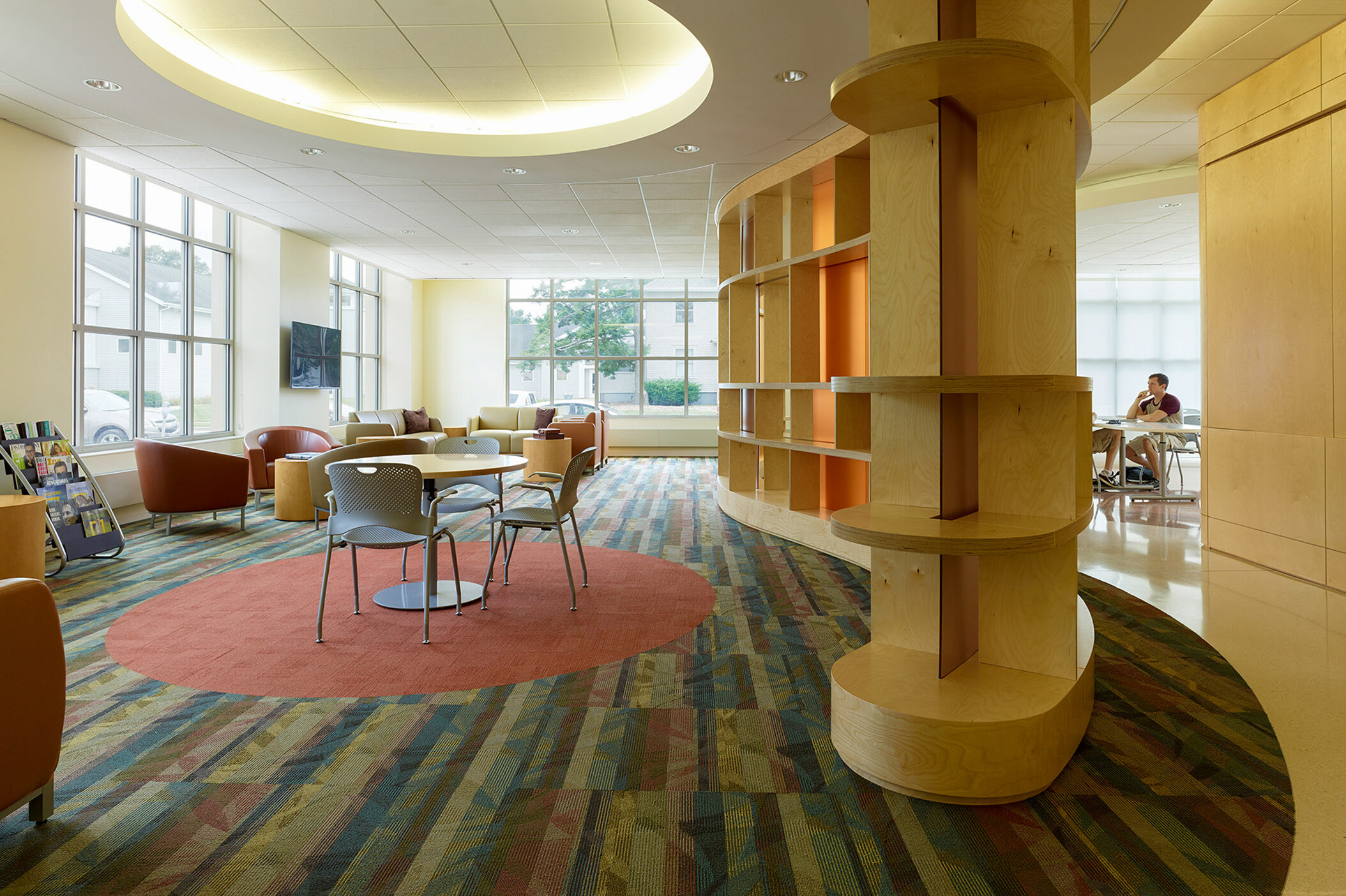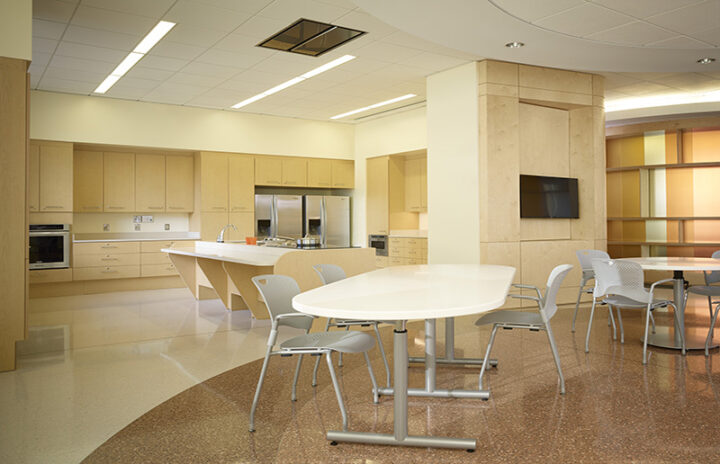Designing for Veteran Academic Success
The University of Illinois at Urbana–Champaign (UIUC) was one of the first higher education institutions to offer specialized programs and housing to support veterans returning from WWII. These efforts were largely credited to Timothy Nugent, a professor of rehabilitation education at UIUC. He founded a first-of-its-kind higher education program to increase opportunities for veterans and people with disabilities to earn degrees.
Consequently, the College of Applied Health Sciences established the Chez Center for Veterans in Higher Education. The center aims at providing veterans a greater sense of dignity through transition assistance and independent living. It offers residences and services to ensure graduation and career success.

Addressing the Underserved Needs of Student Veterans
Student veterans constitute an underserved campus population with distinct needs, whether they are disabled or not. Moving from civilian to military life and back, often with life-altering experiences and injuries, this group certainly faces multiple significant life transitions. Smooth transitions are crucial to preventing adverse consequences.
An article in the Journal of Rehabilitation Research and Development highlighted that, despite more veterans attending college due to increased education benefits from the Post-9/11 GI Bill, they still lack the necessary support services to graduate. Indeed, veterans and individuals with disabilities who lack emotional and physical support have lower graduation rates and are less likely to re-enroll if they drop out, often resulting in unemployment or underemployment.
Crafting a Vision into Reality
The project team, consisting of LCM Architects, the College of Applied Health Sciences, and the University’s planners, embarked on creating a center at UIUC that offers essential support services. The process took over three years to finalize a location, develop a program, and design the new facility. UIUC representatives visited other higher education institutions with programs for student veterans, but none matched their vision.
William Goodman, Associate Dean for Administration in the College of Applied Health Sciences at UIUC, emphasized the importance of the center’s location on a high-visibility campus with direct access to classrooms, dining, and activities. The campus offered 11 different sites, including some remote or off-campus options.
University of Illinois Urbana-Champaign
Embracing Universal Design and Support
LCM is known for designing for a variety of different disabilities, including vision, hearing, mental health, developmental, and physical impairments.
LCM Partner Jack Catlin, FAIA emphasized that one of the firm’s missions is to create environments that adapt to people rather than people having to adapt to their environment.
LCM designed the Center in alignment with the principles of universal design. The group kitchen features base cabinets and appliances with drawers instead of doors, low work surfaces, adjustable height tables, and a sink with front approach and knee clearance. It is a social gathering area that doubles as a teaching tool.
The residences are situated on the top floor for privacy and serviced by two universally designed elevators. The rooms and bathrooms were designed for maneuverability, flexibility, and accessibility. Remote-controlled shades and automatic door openers enhance usability. Even the soft and indirect lighting was chosen for people with vision and comfort issues.

Leading the Way for Higher Education Institutions
The Chez Center for Veterans in Higher Education adopts a holistic approach to meeting veterans’ needs through both the physical environment and special programming. Fourteen residences are covered with 24-hour support. Support services include health and life skills management training, peer mentorship, academic tutoring, psychological and career counseling, rehabilitative and employment services, and social events.
The center has seen a significant increase in engagement, with approximately 140 student veterans utilizing its services per semester, compared to only 30 students seeking assistance when it first opened in 2015. Goodman is delighted with the strength and success of the program at UIUC and takes pride in it serving as a benchmark for other higher education institutions planning similar facilities.
University of Illinois Urbana-Champaign